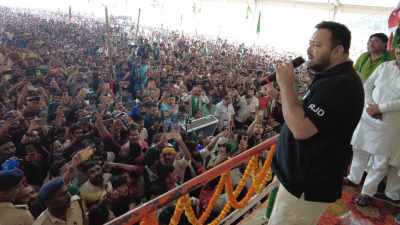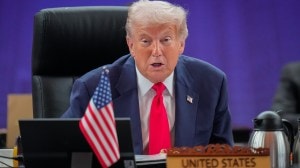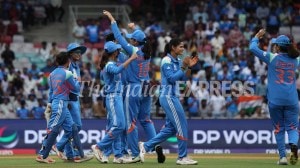PM: Backlog of cases saps strength of our judiciary
Prime Minister Manmohan Singh on Saturday expressed concern over the huge backlog of cases that is clogging the Indian justice delivery system....
Prime Minister Manmohan Singh on Saturday expressed concern over the huge backlog of cases that is clogging the Indian justice delivery system.
Speaking at the inaugural session of the National Convention on Law,Justice and the Common Man here,Singh said democracy had little meaning for the common man and woman unless they are able to secure basic rights and gain easy access to speedy justice.
At a conference of Chief Justices and Chief Ministers some time back,I had pointed out that the Indian legal and judicial system,in some sense,reflects a great contradiction. Our democracy and our legal and judicial system have strengths that are admired the world over. We have a free press,a truly independent judiciary and independent institutions like the Election Commission and the Comptroller and Auditor General. The quality of our lawyers is reflected in the innovative legal doctrine and precepts that they have helped establish. However,all these strengths are somewhat diminished by the arrears and backlog of cases at every level of our judicial system, Singh said.
He also said laws,which had ceased to be relevant,should either be deleted or amended. Procedural laws have to be pruned and streamlined. We have to show sensitivity and care in dealing with the vulnerable and marginalised sections of our society, he said. Singh also asked the states to initiate immediate action to operationalise the Gram Nyayalayas Act.
Seeking to take judicial reforms forward,the Prime Minister promised that the government would walk the extra mile to match each step taken by them if the lead comes from within.
Legal and judicial reform is not the concern only of the judiciary or the legislature it is equally the solemn responsibility of the executive and indeed of the bar, he said. The government would not be found wanting in tackling problems being faced in administration of justice,he said.
In her address,Congress president Sonia Gandhi also voiced concern over the pendency of 2.5 crore cases at various levels and said the milestone legislation of Gram Nyayalayas would ensure speedy disposal of these cases and give meaningful justice to common man.
Saying that justice should be effective and firm,Sonia said successive UPA governments had brought a wealth of unprecedented legislative reforms from RTI,NREGA to the womens Bill being passed in the Rajya Sabha,which is now to get the approval of the Lok Sabha.
Union Law Minister M Veerappa Moily made a strong plea for creation of a national databank on lawyers so that their expertise could be used in different fields.
He also said two-thirds of the undertrials in the country would be released from jails by the end of July 2010.
Nation will get rid of Naxals in 2-3 years,says Chidambaram
On a day when Union Minister for Rural Development C P Joshi called for redefining human rights in the context of Naxalism and terrorism and insurgency in Kashmir,Union Home Minister P Chidambaram asserted that human rights were inalienable. He also said while taking on Naxals security forces were observing the greatest amount of restraint.
Our instruction to the security forces is not to fire on Naxals until fired upon,to fire only to clear the area. They (security forces) are fighting with one hand tied behind their back, he said.
The Home Minister was speaking at the National Convention on Law,Justice and the Common Man organised by the Legal and Human Rights Department of the Congress here on Saturday.
Talking about the fight against Naxalism,Chidambaram asserted that the government would rid most parts of the country of the threat of Naxalism in the next 2-3 years.
Speaking at an earlier session before the arrival of the Home Minister,Joshi had referred to the problems of the Naxalism,terrorism and Kashmir. How do we define human rights? It is defined by countries which have different yardsticks. If a large number of people take law in their hands,how do we defend human rights? I think the time has come when we have to define human rights. Western countries have their own definitions and interests. So,you have to redefine what human rights are, said Joshi.
However,in his address,Chidambaram pointed out that every child is born with human rights and nobody gives them to anybody. Nobody can encroach upon anybodys human rights, he said.
Chidambaram said fighting Naxalism was one of the challenges facing the country along with poverty,terrorism and militancy. He said Naxals wanted to overthrow elected governments by use of force.
Talking about incidents of terror attacks on some Indian cities such as Mumbai and Pune,Chidambaram said India was no more or less vulnerable to terror attacks than any other country.
We must build capacity to rebut such attacks. But,let me assure you that we shall prevail, he said.






- 01
- 02
- 03
- 04
- 05

























